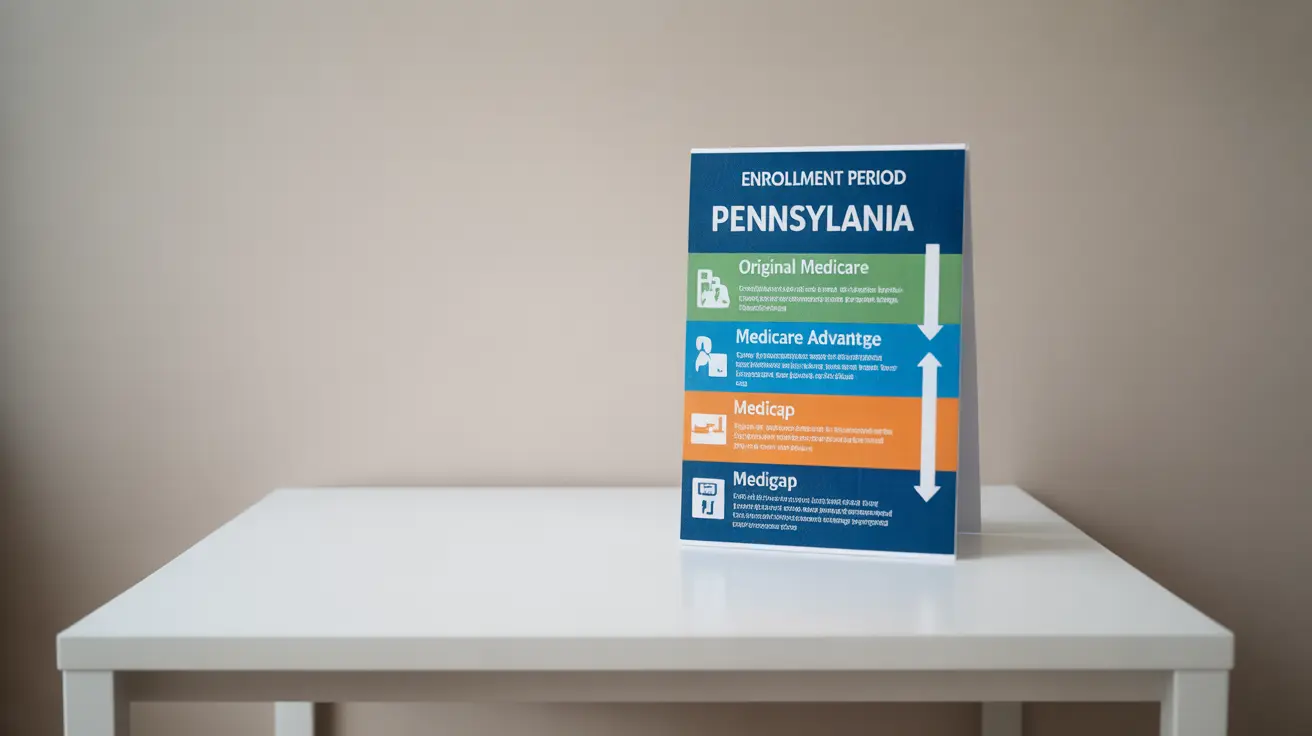Navigating Medicare options in Pennsylvania can feel overwhelming, but understanding your coverage choices is crucial for accessing quality healthcare. Whether you're approaching eligibility age or looking to modify your current coverage, this comprehensive guide will help you understand Medicare in Pennsylvania and make informed decisions about your healthcare coverage.
From Original Medicare to Medicare Advantage plans and various supplemental options, Pennsylvania residents have numerous choices to consider. Let's explore the key aspects of Medicare coverage, eligibility requirements, and available assistance programs in the Keystone State.
Medicare Eligibility and Enrollment in Pennsylvania
To qualify for Medicare in Pennsylvania, you must be 65 or older, or have certain disabilities or medical conditions. Most people become eligible for Medicare when they turn 65, but younger individuals may qualify if they receive Social Security Disability Insurance (SSDI) for 24 months or have specific conditions like End-Stage Renal Disease (ESRD) or ALS.
The Initial Enrollment Period (IEP) begins three months before your 65th birthday month and extends three months after. Missing this period could result in late enrollment penalties, so it's essential to understand your timeline and options.
Understanding Medicare Coverage Options
Original Medicare (Parts A and B)
Original Medicare provides hospital insurance (Part A) and medical insurance (Part B). While many Pennsylvania residents receive Part A premium-free, Part B requires a monthly premium. This foundation of coverage allows you to see any healthcare provider that accepts Medicare.
Medicare Advantage Plans in Pennsylvania
Medicare Advantage (Part C) plans in Pennsylvania offer an alternative to Original Medicare, often including additional benefits like dental, vision, and prescription drug coverage. In 2025, Pennsylvania residents can choose from numerous Medicare Advantage plans, with options and costs varying by county.
Medigap Plans
Medicare Supplement Insurance (Medigap) plans help cover out-of-pocket costs associated with Original Medicare. Pennsylvania residents can choose from several standardized Medigap plans, each offering different levels of coverage.
Financial Assistance Programs
Pennsylvania offers several programs to help residents with Medicare costs:
- PACE and PACENET (Pharmaceutical Assistance Contract for the Elderly)
- Medicare Savings Programs
- Extra Help for prescription drug costs
- State Health Insurance Assistance Program (SHIP)
Medicare Resources and Counseling
Pennsylvania residents can access free, unbiased Medicare counseling through the APPRISE program, now known as PA MEDI (Medicare Education and Decision Insight). These certified counselors can help you understand your options and choose the most suitable coverage for your needs.
Frequently Asked Questions
- Who is eligible for Medicare in Pennsylvania, and when should I enroll?
You're eligible for Medicare in Pennsylvania if you're 65 or older, or under 65 with qualifying disabilities. Enroll during your Initial Enrollment Period, which starts three months before your 65th birthday month and ends three months after.
- What Medicare Advantage plans are available in Pennsylvania in 2025, and how do their costs and benefits differ by county?
Pennsylvania offers numerous Medicare Advantage plans in 2025, with availability, costs, and benefits varying by county. Plans may include additional benefits like dental, vision, and prescription drug coverage. Contact PA MEDI or visit Medicare.gov to compare specific plans in your area.
- How does Original Medicare coverage compare with Medicare Advantage and Medigap plans in Pennsylvania?
Original Medicare provides basic hospital and medical coverage, while Medicare Advantage plans often include additional benefits and may bundle prescription drug coverage. Medigap plans work with Original Medicare to cover out-of-pocket costs but cannot be used with Medicare Advantage plans.
- What financial assistance programs are available in Pennsylvania to help with Medicare premiums and out-of-pocket costs?
Pennsylvania offers several assistance programs, including PACE/PACENET for prescription drugs, Medicare Savings Programs for premiums and cost-sharing, and Extra Help for prescription drug costs. Eligibility is based on income and resource limits.
- Where can Pennsylvania residents find free counseling and resources to help choose the best Medicare plan?
Pennsylvania residents can access free Medicare counseling through PA MEDI (formerly APPRISE). These certified counselors provide unbiased guidance on Medicare options. Contact your local Area Agency on Aging to schedule an appointment with a PA MEDI counselor.




